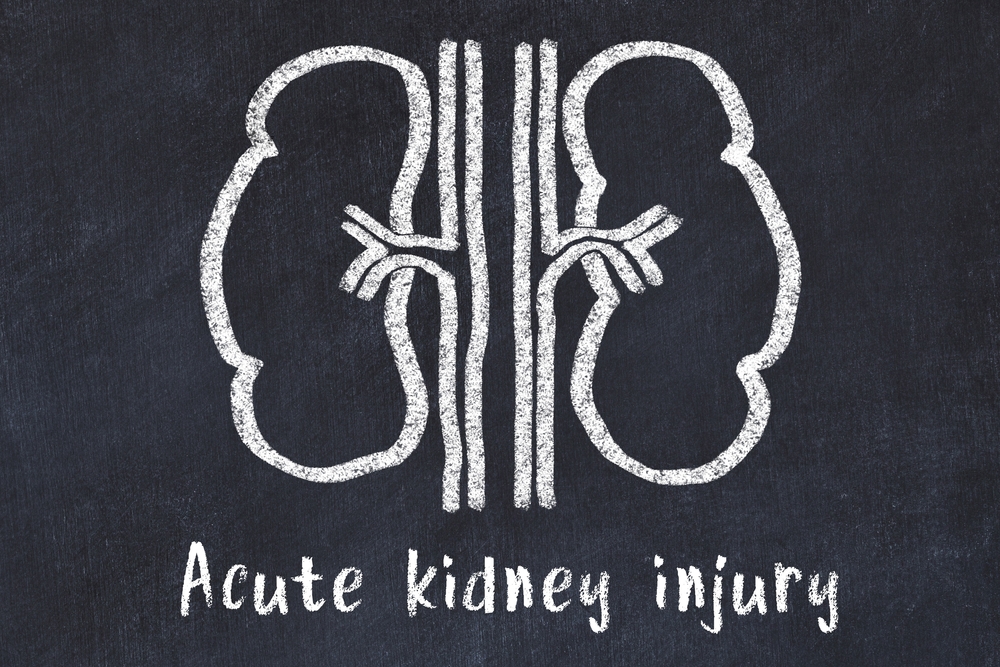
Overview
Acute kidney injury (AKI) is not, as the name suggests, when your kidneys are physically hit but rather, is the sudden stop of your kidneys functioning properly. It is also called acute kidney failure or acute renal failure. It is also different from chronic kidney failure, which is where the kidneys slowly stop working over a long period of time.
The phrase covers a range of severity from minor loss of kidney function to complete kidney failure. Even if you do not have complete kidney failure, you should take it very seriously as it affects the whole body and can make other existing health problems more serious.
AKI is usually a complication of another serious illness and is typical in older people who have other health conditions
Key facts
- Acute kidney failure happens when the kidneys suddenly become unable to filter out waste by-products from your blood
- It is normally experienced by people who are critically ill people who need intensive care
- It is possible for acute kidney failure to have no signs or symptoms and is therefore, important to be detected through lab tests
- Testing urine samples for protein, blood cells, sugar and waste products, can indicate the underlying cause
Symptoms
Although symptoms don’t always occur, these are the most common identifiable symptoms:
- bloody stools
- breath odour
- generalised swelling
- fatigue
- pain between ribs and hips
- hand tremor
- bruising easily
- decreased appetite
- decreased sensation, especially in your hands or feet
- high blood pressure
Diagnosis
If you experience generalised swelling, caused by fluid retention then your doctor may be able to hear ‘crackling’ in your lungs using a stethoscope.
More generally, it is likely that your doctor will run a series of tests to confirm diagnosis and explore any underlying cause. These tests can include:
- urine tests to examine a wide range of factors including the levels of blood urea nitrogen (BUN), serum potassium, serum sodium, estimated glomerular filtration rate (eGFR), urinalysis, creatinine clearance, and serum creatinine
- an ultrasound to diagnose acute kidney failure. Your doctor may also request an abdominal X-ray, abdominal CT scan or abdominal MRI to see if there are blockages or other issues around the kidneys
- blood tests can also reveal an underlying cause of the acute kidney failure.
Causes
Acute kidney failure can occur for many reasons. The most common include:
- severe or sudden dehydration
- urinary tract obstruction
- toxic kidney injury from poisons or certain medications
- acute tubular necrosis
- autoimmune kidney diseases, such as acute nephritic syndrome and interstitial nephritis
The following conditions can reduce blood flow, which can damange your kidneys:
- low blood pressure
- serious illness
- haemorrhage
- burns
- septic shock
Other health disorders can cause clotting in the blood vessels of your kidney, which can result in acute kidney failure. These conditions include:
- hemolytic uremic syndrome
- idiopathic thrombocytopenic thrombotic purpura
- malignant hypertension
- transfusion reaction
- scleroderma
Prevention
The best way to prevent experiencing acute kidney injury is to treat and manage illnesses that can lead to it. Key to this is maintaining a healthy lifestyle including regular physical activity and a balanced diet. Ensure that if you have other medical conditions that can lead to AKI that you work with your doctor to manage them appropriately.
Typical Treatments
Potential treatment routes will depend on the cause of your acute kidney injury. Obviously, the aim of the recommended treatment is to restore you to normal kidney function and key to this is preventing fluids and wastes from accumulating in your body while your kidneys recover.
Treatment can include:
- Diet
Your doctor will closely manage your diet, to monitor the type and amount of food and liquid you eat and drink. This will help reduce the buildup of toxins that the kidneys would normally process. This will normally be a diet high in carbohydrates and low in protein, salt, and potassium.
- Medications
Your doctor may also give you antibiotics to treat or prevent any infections that occur at the same time. Diuretics can help your kidneys eliminate fluid. Insulin and calcium can help avoid increases in your blood potassium levels.
- Dialysis
It could be that you’ll be recommended dialysis as a temporary measure. This involves diverting blood out of your body into a machine that filters out waste. The clean blood is then returned to your body.
Conclusion
Acute kidney failure can be a life-threatening illness. There is a greater risk of death if kidney failure is caused by severe infection, trauma, or surgery. However with proper treatment and maintenance, the chances for recovery are good.
MOST COMMON






